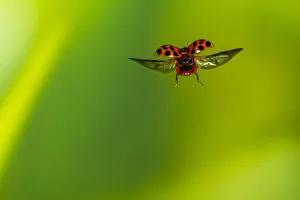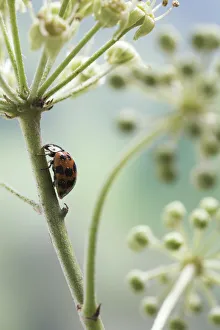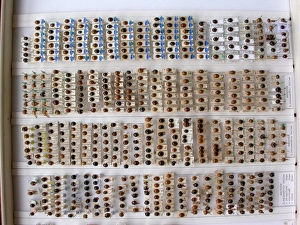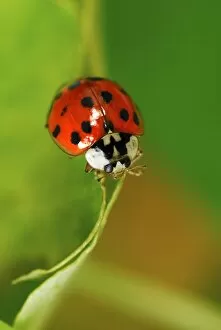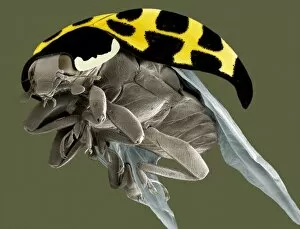Harmonia Axyridis Collection
"Harmonia axyridis: The Invasive Ladybird Species Taking Over the World" Native to Asia, Harmonia axyridis, also known as the Harlequin ladybird or Asian lady beetle
All Professionally Made to Order for Quick Shipping
"Harmonia axyridis: The Invasive Ladybird Species Taking Over the World" Native to Asia, Harmonia axyridis, also known as the Harlequin ladybird or Asian lady beetle, has become a global phenomenon. Originally introduced to control aphids in greenhouses, this species quickly spread beyond its intended purpose and established itself as an invasive species in many parts of the world. In the UK, it is often mistaken for the native Seven-Spot ladybird (Coccinella 7-punctata), but upon closer inspection, its distinct black M-shaped markings on its pronotum give it away. This aggressive invader outcompetes other ladybirds for resources and poses a threat to their populations. From Tuscaloosa County in Alabama to various locations across Europe like the UK, these resilient creatures have made themselves at home wherever they go and can be seen flying gracefully through the air or feeding voraciously on ivy flowers. Even nettle leaves and lettuce are not safe from their insatiable appetite. With their multicolored shells ranging from red to orange and even black with varying numbers of spots, Harmonia axyridis stands out among other ladybirds. Their striking appearance makes them easy targets for photographers capturing close-ups or scanning them under a scanning electron microscope (SEM). Despite efforts to control their population growth in certain areas like Arkansas, these harlequin invaders continue spreading relentlessly. Their adaptability and resilience make them a formidable force that cannot be ignored. Love them or hate them; there's no denying that Harmonia axyridis has left an indelible mark on ecosystems worldwide. As scientists strive to understand their impact better and find ways to manage their presence effectively, one thing remains clear – these harlequin ladybirds are here to stay.


